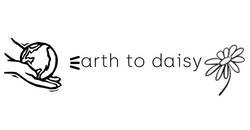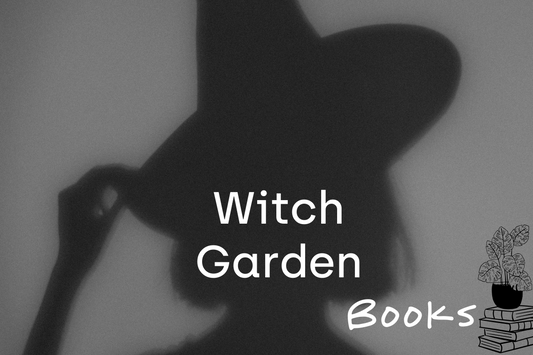Should I start composting in 2023?
Should I Start Composting?
Last week I went to my fave plant shop with a friend. While we picked out the pretty foliage, my friend would not shut up about her tomatoes.
She loves eating tomatoes from her garden in the summer.
This year she's excited to show her boys her love of cherry tomatoes. She plants to get a bunch of cool varieties and try them out. Yellow and purple and orange and red. Sounds yummy. Seriously, she would not shut up about how satisfying it was to eat a tomato from her garden. The Part she was stoked on the most was that she didn't have to buy her compost because she used the compost from her food scraps last year!

I started my compost about a year ago and I'm on to my second bin— but I'm not at using it in the garden phase yet. How fun!
I wish I started my compost earlier at this house. I really wasted a lot of food. Oops. But at first, we couldn't find the right bin situation. Anyway. You're going to have your own compost situation soon. You don't need to hear about mine. Do I think you should start composting?
Yeah, probably. Let's taco bout it. 🌮
We're about to give you some overview information about composting. Who, How, When, Why. All the good stuff. Starting with who should compost.

Who should start composting?
Everyone.
Easy.
Next!

At Earth to Daisy, we don't love to tell people what they should do. But if you're the one asking ... yeah!
Let's compost!
Compost is nutrition-rich soil. It's great for the garden and great for the Earth. Composting your food scraps is a great way to get in touch with the earth. Get rid of some sustainability guilt by saving and returning your food scraps to the earth.
Composting is as simple or as complicated as you'd like. It can be as easy tossing your food scraps in the same place each time. Or you can jump down the microscope and learn about what's in your soil food web.
If you've never saved your food scraps, the time to start is now. It's like the tree thing. We all should have started 20 years ago. But if we didn't? Let's start today.
How Should I Start Composting?
There are so many options for composting. It can be a bit daunting. We'll help you out.

We're going to answer a few questions about composting, like:
- What is composting?
- Why should I Start Composting?
- How does composting work?
- What is the best type of composting?
- What methods of composting are there?
- Which method of composting is right for me?
But first!
Here are 5 Key Benefits of Composting:
1. Composting is Good for the Environment—
Composting helps slow climate change by reducing greenhouse gas emissions from landfills. Preventing greenhouse gases from releasing into the atmosphere is the general goal. Organic waste left to decompose without oxygen (anaerobic digestion) produces methane. Methane is 21 times more potent than carbon dioxide as a greenhouse gas. But, aerobic composting processes break down organic waste with oxygen. This process produces carbon dioxide instead of methane. So by avoiding landfills, you can help protect our planet from damaging emissions!
2. Composting is Cost Effective –
Composting can save you money! Gardening supplies like fertilizer and potting soil cost money each season. Composting creates a natural fertilizer full of nutrients like nitrogen and phosphorus. This saves what you would spend on expensive chemical fertilizers. Composting benefits home gardeners and farmers by providing nutrients for a low cost.
3. Compost Helps Conserve Water –
Mixing compost into the garden soil improves its ability to absorb and keep water. This allows plants to use water more than when grown in non-composted soils.
Conservation of water has many benefits:
- Less runoff pollution from rainwater
- Better drought resistance for plants
- Decreased demand on municipal water resources
Composted Soils are less compacted, allowing rain water to seep into the earth. There is more of a structure to soil with compost mixed in. This allows spaces and pockets for water to stay in the soil, nourishing the micro organism.
4. Compost Enhances Plant Growth –
Studies have shown that compost use improves plant growth compared to traditional fertilizers. One reason is due to increased levels of beneficial microorganisms in composted soils. These organisms help promote healthy root development. They can access more nutrients from the soil than plants can on their own. Beneficial microorganisms help sustain healthier plants. You'll see less disease with compost mixed into your soil.
5. Compost Can Feed Your Soil Life –
Compost feeds microorganisms like fungi, bacteria, nematodes, protozoa and arthropods. Composted organic matter provides the essential elements your plants need to grow. Your food scraps feed the microbial populations that feed your plants.

What is composting?
Composting is the natural process of decomposition of organic material.

Why Should I Start Composting?
“Composting is a daily practice of a tangible environmental good that you can literally measure by the pound,” says. “It is easy to do, it’s fun, it’s satisfying, and it all adds up.”
Starting a compost pile at home is easy!
If you're grumbling and bored every [Thursday]
(insert your own trash day here)
One benefit of starting a compost pile is that you'll have less trash to take out.
Tired of taking the trash out? Me too!
Composting might be for you.
Gaining back a little of your time might be your reason!
Composting can have large effects on the health of your garden.
The efficiency of composting is high. We're setting up other creatures to do what they love to do.
Do you grow a garden at home yet? There is a great benefit to the earth for composting food scraps. — rather than setting them free to decompose. The earth has well established system for decomposing food it created in the first place.
How Does Composting Work?
There are many ways composting works.
Mostly via tiny animals, sometimes with heat.
It's the breaking down of organic materials. Something is eating your trash.
There are different methods of composting depending on how much space and effort (or $) you have. And there are different types of compost as a finished product.
What are the 4 Primary Types of Compost?
, composting is the recycling of organic matter into fertilizer to enrich the soil. There are 4 main types of "finished" compost to use in the garden.
- compost
- Farmyard manure
- Green manure
- Vermicompost
Compost is what you get from a compost pile. It's a pile of food scraps, plant clippings, coffee grounds, and Tea leaves/bags.
Food scraps of fruit and vegetables can't decompose in the regular trash.
You're removing their ability to decompose because there's no oxygen.
There are different methods of composting depending on how much space and effort (or $) you have.
What Type of Composting Should I Start?
The best type of compost is the one you keep on using.
There are lots of ways to set up a compost.
At my house, it has to be easy. If it's not easy, we're not using it. My compost is off the back deck. I can walk out my back deck and drop my stuff in there. If there's a mission involved with corraling the food scraps, we're not going to do it.
But we've composted for about a year now! Stoked! We're covering up bin number one and on to the second!
Your compost bin could be a fancy contraption you keep in your kitchen, or a bin the city takes away. You can compost in a pile out yonder, a tumbler, and a bunch of other things. I knew a girl that made her compost out of a wooden trunk she kept in the closet.

Where to compost is two questions.
What's the vessel? & Where does the vessel live?
What Methods of Composting Are There?
There are many methods of composting.
The type my friend kept in her closet? That was a vermiculture compost big, the wormy type. They like to be in the dark and are voracious eaters. they eat banana peels, apple cores, the ends of carrots, and the floppy lettuce you don't like to use.
A few easy types of composting for beginners are:
- open-air compost piles
- Enclosed compost bins
- Worm farm compost
Which Method of Composting Should I Choose?
You should choose your composting method based on your space.
Are you in a suburban home with a private yard or a flat in the city?
Should I start open-air composting?
A traditional open-air compost pile is a great method of composting for large yards. You'll want to have plenty of room. Open air composts need some mixing. Space to spread out materials like grass clipping and leaves will be helpful.
Should I start enclosed-bin composting?
Small spaces are better suited to enclosed bin compost method.
Should I start worm composting?
Worm farming for compost is arguably the most fun! It's very fast, doesn't smell much, and is interactive without feeling too much like farm work. But, there are worms.
If you're into that, great!
What should I know before I start Composting?
- You shouldn't put meat or dairy in your compost.
- Eggshells are okay, but beyond that, you will attract ... "undesirable" critters.
- Large composting piles need to be turned.
- Compost in your house will smell a bit and attract flies.
- You can keep some scraps in the freezer to avoid the smell if you go out to a bigger bin every few days.
We'll talk about the dos and don't of composting in a different article.
Chances are an open-air compost is going to attract plenty of worms if the bottom is open to the ground. The difference between open-air composting with worms & vermi-compost is the enclosed container.
Where Should I Go to Read More About Composting?
Here's an awesome article from Yale experts on composting.
Here's a paper about the state of composting in the US.

Starting your own personal compost situation will be beneficial both environmentally and economically.
And if you enjoy gardening, you'll get even more benefits!
So yes!
Earth to Daisy thinks you should start composting.
The benefits are numerous and the world needs you.
Composting is a simple way to get started saving the earth.
We like Earth.





